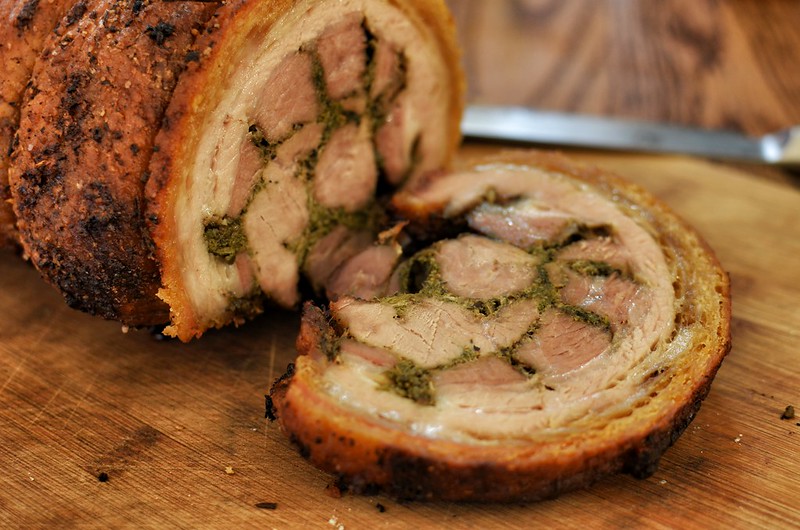Industry Regulations Cause California Pork Prices To Skyrocket

Los Angeles’ barbecue scene is beginning to feel the effects of Proposition 12, a new measure that focuses on making meat production more humane. According to the LA Times, the goal of the initiative is to expand the confinement areas for calves raised for veal, egg-laying hens, and breeding pigs on any farm whose product is sold in California.
Although the intentions behind Prop 12 are positive, in the five years since its passed, California’s pork supply chain has slowed considerably. Deputy general counsel of the American Farm Bureau Federation Travis Cushman estimates that only up to 7% of breeding pig farms have actually met the new standards, while others may never reach them.
Facing challenges, the pork industry has pushed back against Prop 12. In response, the Superior Court for the County of Sacramento granted a temporary grace period that began on July 1, 2023 and allows noncompliant pork to still be sold until January 1, 2024. The caveat is that suppliers can only use pork that was purchased before July 1.

Prices for pork are projected to increase leading into 2024. According to the U.S. Department of Agriculture, “tighter-than-previously expected supplies of hogs and expectations for relatively strong demand for hogs at the national level,” are said to be the cause. For clarity, the USDA does not directly track the conditions of the pork industry, yet having an overview of how a policy can impact the market on a state-level does provide some insight. Currently, pork prices are the highest they’ve been since Proposition 12 went into effect in January 2023.
Faced with limited supply and growing costs, pitmasters in Los Angeles have begun rationing the little bit of non-compliant pork left remaining. Along with the rising costs are customer complaints. The shrinking margins are squeezing the life from small businesses. Talking to the LA Times, founder and seasoned pitmaster of Black Sugar Rib Company, Arnold Rodriguez, said that inflation has caused unprecedented strain on his business.
“Luckily I’ve been finding enough ribs every week for the last three weeks to get me through every Sunday,” Rodriguez said. “But if I get a call tomorrow for a big event, or Tuesday, or Wednesday, I’m gonna be scrambling.”

According to a statement released by the National Pork Producers Council (NPPC), beyond Prop 12, there are several reasons behind the rise of pork prices: supply chain issues, labor shortages, high production and distribution costs, and strong consumer demand.
The NPPC further elaborates in the statement, “Currently, U.S. pork producers are facing a once-in-a-generation economic environment. They are not profitable and now are faced with deciding to invest millions in altering their barns if they choose to comply with Proposition 12.”
The proposition specifically mandates that living spaces for breeding pigs, or sows, must be a minimum of 24 square feet. Currently, many pigs live in 2-foot-by-7-foot metal gestation grates which leave little room for stretching. Prop 12’s impact even extends beyond California to farmers that import product into the state.

The NPPC along with the American Farm Bureau Federation filed a lawsuit in 2019 which alleges that Prop 12 is unconstitutional and violates the Commerce Clause, which regulates commerce with foreign nations. The organizations argue that Prop 12 causes unfair burden on out-of-state suppliers, as California imports the majority of its pork. The Supreme Court of the United States ultimately ruled against the lawsuit, citing that other states were allowed to pass a similar proposition.
While suppliers fight with California over what’s fair and what’s not, it’s the small business owners that are really feeling the impact. From taco trucks to barbecue spots, pork is an important part to LA’s culinary scene, and until this transitionary period passes, it looks as though it will remain pricey.






















